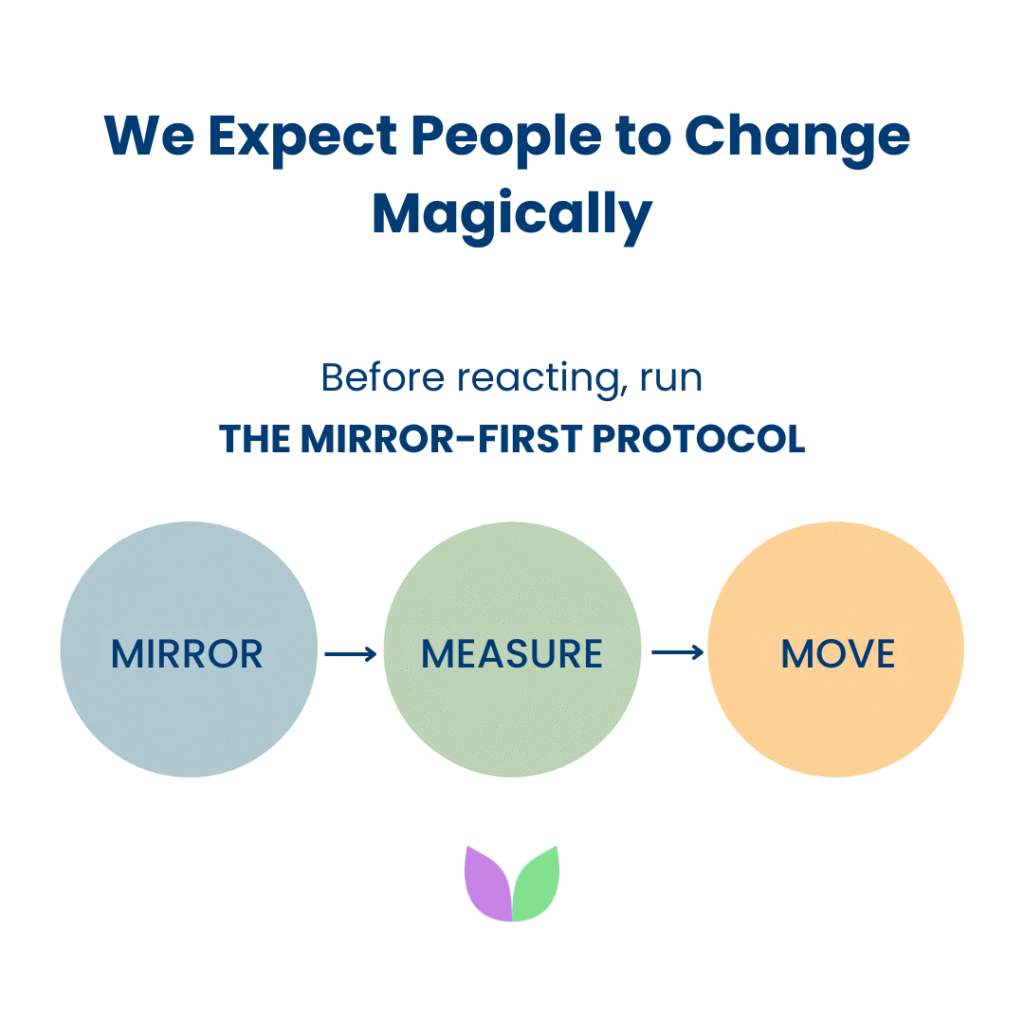We expect people to change — magically. But Refuse to Be It.
It’s easier to be angry than to be honest.
Easier to complain than to converse.
Easier to expect others to change while staying exactly the same.
Marcus Aurelius wrote centuries ago about how we get angry at people for things they often don’t even realize they’re doing.
Instead of helping them see, we simmer in silent frustration.
We would rather stay irritated than have a short, awkward conversation that could actually help both sides grow.
Look around at work, in relationships, even in society.
We keep wishing others would be:
- more respectful,
- more disciplined,
- more self-aware.
Yet we rarely take the step to help them become any of those things.
We want improvement without involvement.
Want change without participation.
We don’t just want people to be better — we expect it to magically happen.
And when it doesn’t, we label them as the problem.
But the problem isn’t with them.
It’s with us.
Why This Happens:
1. Emotional Laziness:
Anger gives the illusion of action. It feels powerful, but it achieves nothing.
2. Fear of Discomfort:
Honest dialogue requires courage. Most people prefer silent resentment to momentary awkwardness.
3. Ego Preservation:
Our mind whispers — “I’m right; they should understand.” That blocks empathy and progress.
4. Control Fallacy:
We assume our irritation alone will make people change. It never does.
The Mirror-First Protocol (A Practical Reset Tool)
Before reacting, pause for a three-step self-audit:
1. Mirror:
“Am I doing the same thing in some form?”
Often, the behavior that irritates us is a reflection of something unresolved in ourselves.
2. Measure:
“Is my reaction helping them grow or protecting my comfort?”
This separates purpose from ego.
3. Move:
Choose your next step consciously —
Assist: Help them see what they can’t.
Adjust: Set boundaries or clarify expectations.
Accept: Let go without resentment.
Real leadership and real maturity begin when we stop expecting others to change and start embodying the change ourselves.
The world doesn’t transform through anger or judgment.
It transforms when awareness replaces blame and reflection precedes reaction.
Because the truth is simple:
You can’t change others by staring at them.
You can only inspire change by becoming it.
